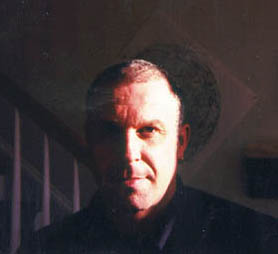
by Justice Putnam
Black Kos Tuesday's Chile Poetry Editor
When I was a young father and husband in my mid-20's, attending Portland State University to finish out my undergrad degree, one of the many jobs to make ends meet, was as a life form model in several Art Schools in town.
It seemed curious to me at the time, why few of the student artists would draw the scars from my athletic injuries; tank track-like scars on my right shoulder and right knee, back in the day when they flailed you open to operate. I asked one of those student artists why that was so,
"Because," he sort of sniffed, "true Artists are only concerned with Beauty. By our efforts, we only want to immortalize that which is Beautiful."
And that summed up the dichotomy that presented itself, to me, in Art generally, but Poetry in particular; is Poetry of the detached observer or of the active participant? Is Poetry to concern itself with Beauty only? How then, is Beauty defined? To that question, I had already concluded with Balzac and Baudelaire, that Beauty is in and can be found in, all things. Regardless, Art and Poetry are records, Art and Poetry are History. As the French academic, Fernand Braudel wrote:
For the historian everything begins and ends with time, a mathematical, godlike time, a notion easily mocked, time external to men, 'exogenous,' as economists would say, pushing men, forcing them, and painting their own individual times the same color.
-- Fernand Braudel
On History
And Victor Hugo punctuated,
One cannot be a good historian of the outward, visible world without giving some thought to the hidden, private life of ordinary people; and on the other hand one cannot be a good historian of this inner life without taking into account outward events where these are relevant. They are two orders of fact which reflect each other, which are always linked and which sometimes provoke each other.
-- Victor Hugo
Les Misérables
The Beats, The Harlem Renaissance and especially The Black Arts movement incorporated in their Ethos, The Primacy of Experience; one's primary experience is what one recorded. It followed then, that one's primary experience was usually that of the active participant. When the neighborhood is burning and dad is shot by vigilantes and mom is cursing the helicopter lights and moving shadows as the windows shake from the prop wash, it's a little difficult to meditate on the petals of an orchid.
So it was for me in the days and weeks after 11 September. I had already flirted with the cynicism brought on by multiples of personal, national and world tragedies; from love lost by absence, incarceration or death; to stumbling upon,
"... the gutted remains of Honduran peasants desiccated next to red bougainvillea, as green hummingbirds darted and stopped at delicate petals and darted away again. I have seen the blasted remains of the last hospital in Sarajevo spilling stone and beds onto the street."
In spite of these experiences, I was still able to hold onto some child-like wonder at the world. I visited New York before the month of September 2001 ended. I didn't find any answers, but I had many questions, questions that revolved around Time, around the change in a person's Heart; questions revolving around the steady erosion of Innocence and how the graduations of that erosion is marked by...
The Dates of Demarcation
by
Justice Putnam
How many times
Can a Heart be broken
How many times
Can a resolve be tested
Is this the meaning
Of Life?
To be reminded
At the most unexpected
Time of
Pain and impermanence
How many times?
I hear the voices
Of those whose
Memories of
Lost innocence
Are etched with the
Precision of a Calendar
On the Stone of History:
Jack London remembered
The Boxer Rebellion
Jack Reed recalled more
Than Ten Days
Hemingway remembered
A Hospital in Italy
Vonnegut talked of
Dresden’s fiery face
Our Grandparents
Think of the Seventh
Of December
While others recall
A day in Dallas
A balcony in Memphis
A hotel in LA
How many more times
How many more generations
Will be born into this
Impending loss?
How many more
Incidents of horror
Before the last
Vestige of innocence
Is carried away?
These questions
May seem on the surface
To be a plea
But
How many more times
How many more images
Of a woman
Her dress blown
In a fall among
Glass
Concrete
Steel
Fire?
(New York September 2001)
from: The Nature of Poetics Collapsed Outside My Window
© 2006 by Justice Putnam
and Mechanisches-Strophe Verlagswesen

No comments:
Post a Comment